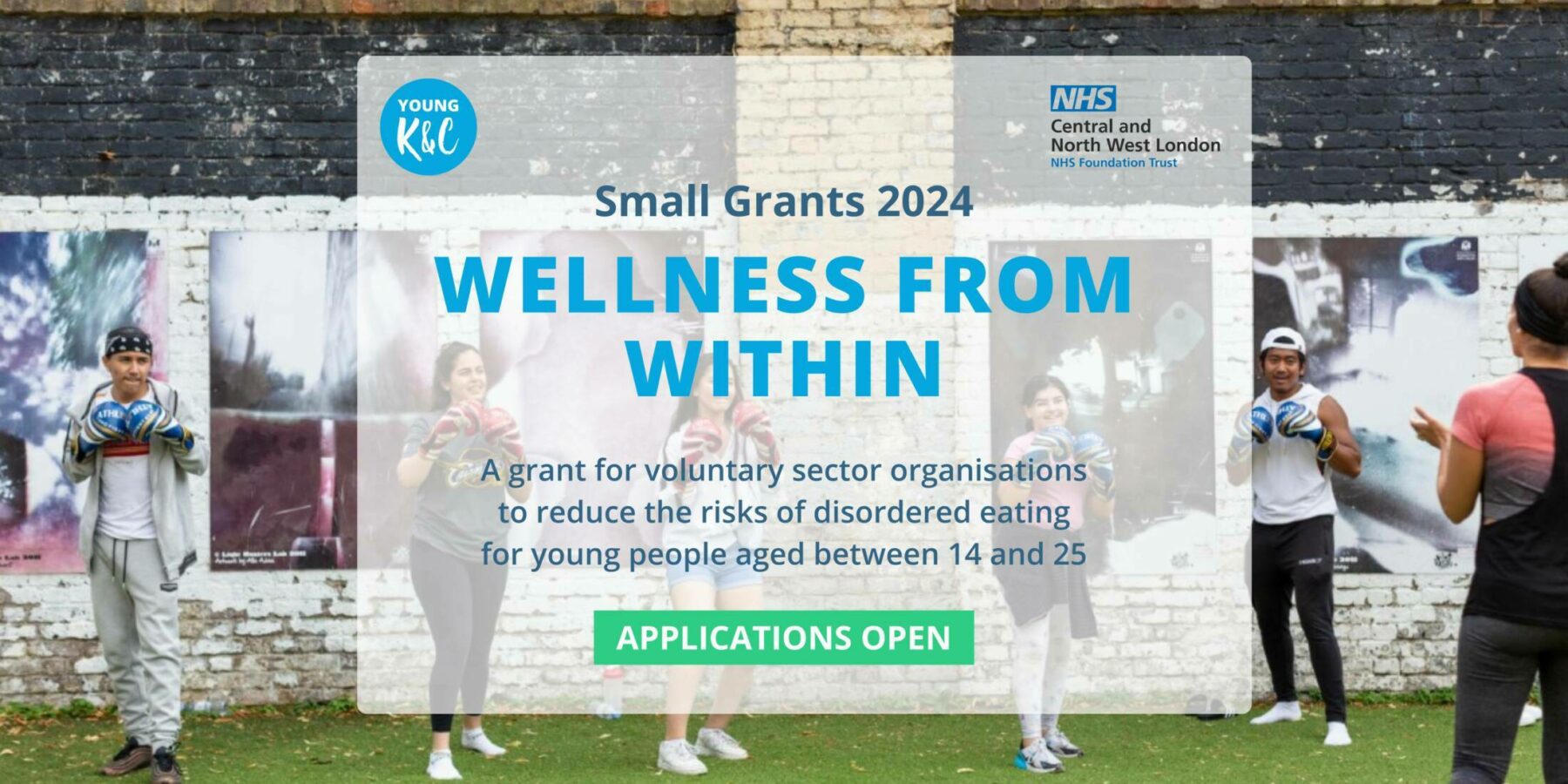
Wellness from Within Grant - Now Open
Eating disorders affect people of every race, size, gender identity, sexual orientation and background.
Between the ages of 14 and 25 young people make key decisions as they transition to higher and further education, into jobs, start relationships, leave home or begin families. The transition from childhood to adulthood can be a difficult time, especially for young people experiencing mental health issues. The late teenage years are an important time for personal development but can also be a time when young people are more vulnerable.
Problems with food can begin as a coping strategy or a way of feeling in control but may lead to more disordered patterns of eating and behaviours.
The aim of this grant programme is to support voluntary and community sector organisations to contribute to prevention and early intervention programmes, working with young people aged between 14 and 25 to help to address issues including self-esteem, pressures to conform to sociocultural appearance ideals, body dissatisfaction, media, and social media literacy, dieting and body change behaviours, and interventions involving parents/carers which aim to prevent eating disorders.
Voluntary groups are well placed to deliver prevention and early intervention programmes including providing support through a culturally and racially sensitive lens, supporting open conversations, dispelling stigma, and fostering resilience regarding disordered eating.
Central and North West London NHS Trust (CNWL) and West London NHS Trust (WLT) have a range of eating disorder services available for all kinds of eating disorders from mild to severe for young adults across NW London. Both trusts recently launched a new evidence-based service which aims to offer help early to those with eating difficulties aged 18-25.
More information is available here about CNWL’s new service STRIDES. CNWL and WLT are inclusive service providers and the teams consist of a diverse range of staff, and support people from all walks of life and communities, for example, young men and young women, young people with special educational needs and disabilities, Global Majority young people, LGBTQ+.
1. Who is this funding for?
Registered charities and community interest companies in Kensington & Chelsea that:
- Currently work with young adults aged between 14 and 25 years
- Are supporting their mental health and emotional wellbeing needs.
2. Who is funding this?
CNWL has secured grant funding from the North London Adult Eating Disorder Provider Collaborative (NLAED PC).
3. What can the funding to be used for?
For VCS organisations that work with young adults aged between 14 and 25 years to provide prevention and early intervention programmes, as well as effectively supporting those with a diagnosed eating disorder to access treatment and be supported through recovery and relapse.
VCS organisations can help to identify individuals who are at-risk of or may be experiencing eating disorders and to provide information about appropriate resources and signpost to services. We expect there to be a wide range of proposals but consideration to under-represented groups is a priority and a commitment to the development of partnership working with CNWL and WLT and to help increase referrals to the new CNWL early help eating disorder services.
Groups/communities identified as either under-represented in services, not seeking support early or where eating disorders are less recognised (there may be additional groups you have identified please provide in your proposal):
- Young men
- Non-binary young adults (who are often struggling with body image)
- Black young adults
- Those with bulimia or binge eating disorders or history of dieting
- Young people with obesity
Programmes may be designed to increase positive body image and self-esteem and focus on risk factors that can be influenced (eg thin ideal internalisation, body dissatisfaction, peer pressure, bullying, perfectionism) and on increasing protective factors (eg self-esteem, social support, respect for diversity). Here are some examples of prevention and early intervention programmes:
- Campaigns to raise awareness, shift perceptions on eating disorders including young adults, parents/carers and staff, eg workshops, providing information
- Delivering awareness-raising that promotes open conversations, dispelling stigma, and fostering resilience regarding disordered eating
- Promotion and signposting of services and support
- Provision of early mental health support through services tailored to the needs of those at risk of eating disorders, which may include peer support and targeted outreach that is culturally and racially sensitive.
Alternatively, programmes may be designed to reach a group more directly, for example:
- Clubs and groups, eg skilling-up those who run them to provide eating disorder awareness or early support
- Professionals who work with young adults eg youth workers, advisory or education services
- Support for body image, exam stress, perfectionism, social media awareness, cooking and eating for health.
The total pot available for funding is £65,000. Grants of between £5,000-£65,000 will be made available to support prevention and early intervention programmes for eating disorders. Individual organisations can develop more than one project but the total cannot exceed £65,000.
Apply Here

